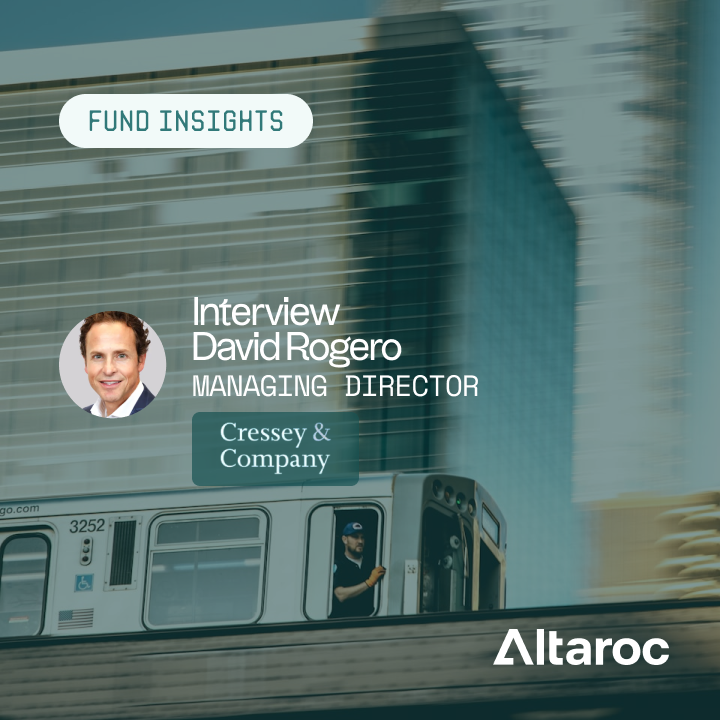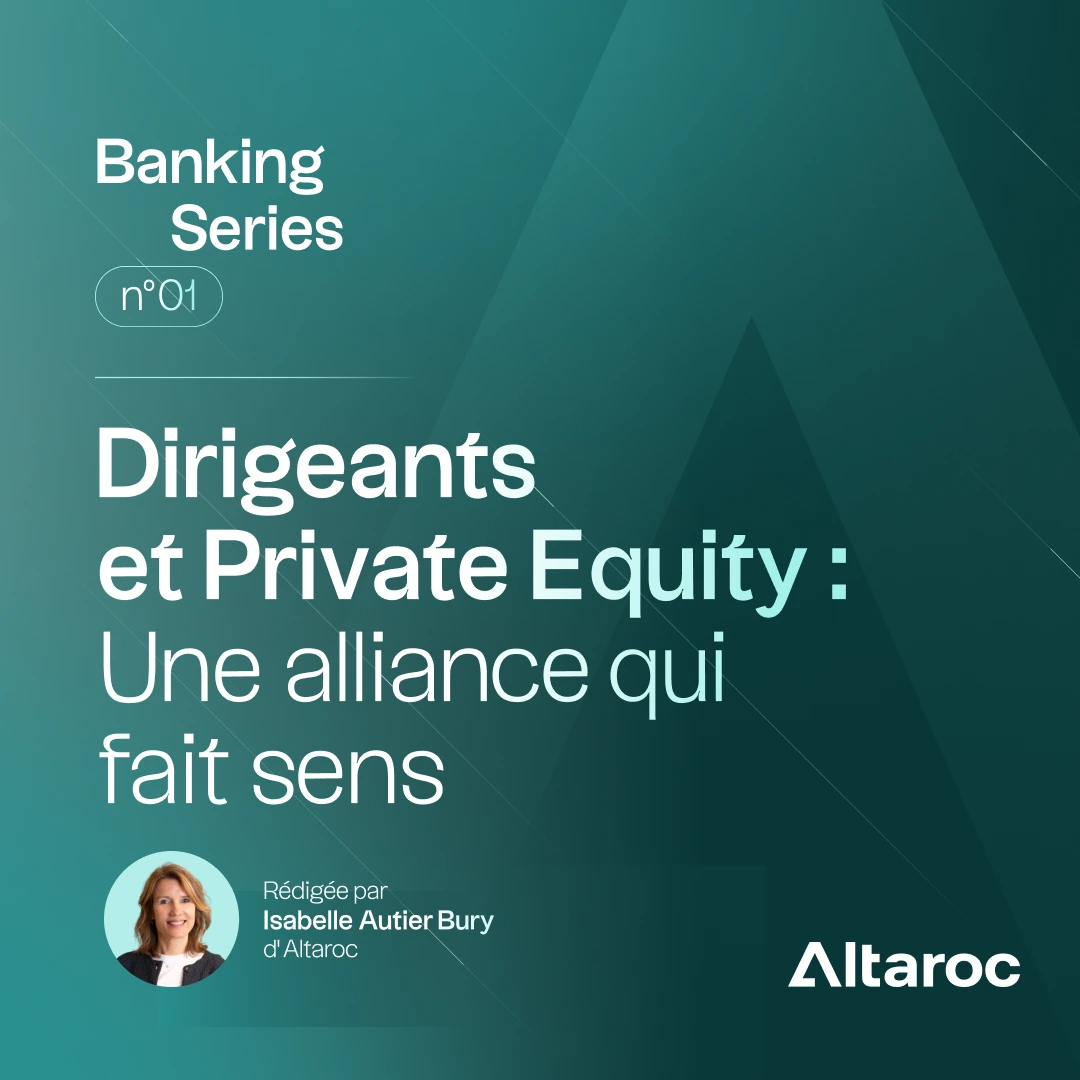Damien Helene, Editor-in-Chief, Altaroc
Why are the French so worried about pensions?
Thibaut Mortelecq, Altaroc Key Account Manager
What's most worrying is the projection. Many French people have the intuition - sometimes confirmed by simulations - that their retirement will be modest, or even insufficient to maintain their standard of living. And this naturally generates anxiety.
For those close to retirement, it is now possible to have a fairly accurate estimate of what they will receive. But for younger generations, visibility is much lower. Successive reforms, longer contribution periods, ongoing political debates... it's hard to plan ahead.
At 30, we rarely think about retirement. But after 40 or 50, the fear of missing out sets in. You start to make your calculations and ask yourself the right questions, often a little too late.
That's why it's essential to think ahead as early as possible, by diversifying your investments and gradually building up long-term savings. It's not a question of betting on a miracle product, but of regaining control over a subject we all too often tend to suffer.
And in this context, the role of the investor - whether an individual or a professional - takes on its full meaning: it's not just a question of seeking performance, but of building a strategy that will enable us to remain free tomorrow.
D.H.: What are the challenges facing the French?
T.M.: The first real challenge is awareness. Many people worry about their retirement... but often too late. Generally speaking, it's around the age of 50 or 55 that people start asking themselves serious questions. The problem is that at that age, you no longer have the luxury of time, so you have to aim for high returns... while being less inclined to take risks. It's a difficult paradox to manage.
The real challenge is to anticipate. Starting at the age of 30 or 40, even with modest sums, allows you to smooth out the effort, bring compound interest into play, and gradually build up your skills in investment matters. It's not necessarily a question of being an expert or betting everything on the financial markets, but simply of entering into a long-term dynamic, learning, testing and adjusting.
What often stands in the way is the idea that you need a lot of money or a lot of time. But this is not true. Above all, you need regularity, a bit of method, and the right support. It's this discipline, more than the initial amount, that will make the difference in the long term.
D.H.: What are your recommendations?
T.M.: The first thing is to draw up a clear investment plan, and above all, to stick to it over the long term. There's no need to aim for large sums or complex investments right away. The real discipline is to regularly ask yourself this simple question: "How much can I invest each month or each year, without compromising my short-term objectives?"
What I often see is an almost exclusive concentration on these short-term objectives: buying a primary residence, financing children's education, or building up precautionary savings. The result is that, over a lifetime, this looks more like a succession of micro-projects than a real wealth strategy.
My recommendation is to set aside part of your savings effort for the long term, as soon as possible, even if it starts small. Why? Because it allows you to gradually familiarize yourself with less liquid, potentially more profitable, and often more technical investments - such as private equity.
The idea is not to pit short term against long term, but to articulate them. By first building up a base of security (precautionary savings, Livret A passbook accounts, etc.), we give ourselves the means to gradually move towards asset classes that are more demanding, but also more powerful over the long term.
And the earlier you get involved, the better your skills, and the more comfortable you are with investment mechanisms - including those that may seem more complex, such as unlisted investments. Investing early in private equity, for example, gives you a real head start: you already have a track record, you understand cycles better, and you know how to position yourself.
Finally, diversification remains the golden rule: real estate, listed and unlisted equities, structured products... The important thing is to have a direction, a method and a long-term vision, without forgetting to adjust according to your age, your projects and your risk profile.
D.H.: Why is there increasing talk of private equity as a way to finance retirement?
T.M.: Private equity is becoming an increasingly important part of retirement discussions for a number of very concrete reasons.
Firstly, because it is becoming more accessible. Historically reserved for institutional investors, it is gradually opening up to individual investors, via simplified, better-structured solutions, sometimes integrated directly into envelopes such as PER. This democratization is changing the game.
Secondly, because it's an asset class historically used by major international pension funds, for one simple reason: it's perfectly aligned with a long-term rationale. We're talking about investments that are locked in for 8 to 10 years, which fits in very well with a retirement strategy.
Finally, private equity has established itself as a performance driver. Over the long term, it outperforms listed asset classes on average, with volatility more contained because it is disconnected from short-term market movements. Obviously, this means accepting a certain degree of illiquidity, but it is also what enables investors to seek differentiating returns.
In short, private equity ticks three key boxes: long term, performance and diversification. For investors preparing for retirement, it's an increasingly relevant part of an overall wealth strategy.
D.H.: How does private equity complement other retirement savings solutions, such as real estate or euro funds?
T.M.: The strength of private equity lies in its decorrelation. It doesn't follow the same cycles as the financial markets or real estate. In this sense, it is an excellent complement to a retirement savings strategy, providing a real layer of diversification.
But diversification doesn't stop there. Private equity is, by its very nature, a very rich universe. If you build up a structured program over time, you can invest in different business sectors, geographical areas and vintages (i.e. different years of investment). This makes it possible to smooth out risks while capturing the growth potential of unlisted companies at different stages of maturity.
Integrated into a portfolio that already combines real estate, euro funds or listed equities, private equity balances out the overall picture. It offers a long-term performance driver, while limiting exposure to short-term market shocks.
In other words, in a well-thought-out retirement strategy, private equity does not replace other solutions - it intelligently complements them. And it is precisely this complementarity that makes it possible to build a more robust and resilient asset base over the long term.
D.H.: What are the main obstacles or concerns that customers have when it comes to using private equity to finance their retirement?
T.M. : The first obstacle is clearly illiquidity. Many people would like an investment that prepares them for retirement, without giving up the right to withdraw money at any time in the event of unforeseen circumstances. It's only human, but it just goes to show how important it is to better segment your savings pockets: to distinguish between what needs to remain available (precautionary savings), and what can be tied up for the long term, with a real return strategy.
Secondly, there is a lack of understanding. Private equity is still poorly understood. It is often confused with "private assets" in general (real estate, private debt, infrastructure, etc.). Many investors don't know exactly what they're buying, or how the fund cycle works. This lack of clarity fuels mistrust.
Access to this asset class also remains a stumbling block: entry fees can seem high, technical documents can be complex, and subscription or redistribution mechanisms (fund calls, distributions, etc.) are not always intuitive.
Finally, there's still a certain cultural distance. Historically, private equity has been the preserve of institutional investors and the very wealthy. Even if it is becoming more democratic today, some individuals still feel that it's "not for them".
But with a little education, a well-structured offering and the right tools, these obstacles can be overcome. The potential of private equity becomes much clearer - and its relevance to a retirement strategy much more obvious.
D.H.: Can we say that private equity enables French savers to give meaning to their retirement by financing SMEs, innovative or sustainable companies?
T.M.: Absolutely. By investing in private equity, savers know exactly what they're putting their money into, so they can support companies that create jobs and value, and deliver the innovations and sustainable solutions of tomorrow. This "tangible" nature makes investing far more concrete than managing an equity portfolio, where valuations fluctuate at the speed of exogenous events - as recent market turbulence has shown.
On the other hand, more traditional products such as euro funds or bank passbooks remain opaque as to the exact destination of the funds. Private equity, on the other hand, offers clarity on the use of capital and the projects supported, giving real meaning to retirement savings.
D.H.: What is your vision for the next few years regarding access to private equity in French retirement strategies?
T.M.: I see a clear acceleration in the coming years. We're still at the beginning of the process. Today, private investors in Europe have little exposure to private equity. But interest is growing, and access is gradually becoming more democratic. As with any new asset class, it will take some time to get the message across, but investor curiosity is alive and well. This curiosity, coupled with a better understanding of the issues, will help to reduce the learning curve for private investors.
Legislators are also pushing in this direction with initiatives such as the Green Industry Act, which encourages insurance policies to offer private equity investments. This clearly shows that institutions and public players recognize the essential role that this asset class could play in retirement savings strategies.
At the same time, new generations are becoming increasingly aware of the importance of preparing for their retirement. Past generations have enjoyed more favorable conditions: a still robust pay-as-you-go pension scheme, real estate markets conducive to investment, and more accessible supplementary income. But all this is changing. Younger generations want to invest in concrete, high-impact projects, and private equity is the perfect answer.
D.H.: For you, investing in private equity means regaining control over your retirement. Why do you think that is?
T.M.: Investing in private equity is indeed a way of regaining control over one's future retirement. Today, many generations anticipate relatively modest retirement pensions. Faced with this prospect, it's becoming essential to build personal wealth, not only for oneself, but also for one's children. Confidence in the traditional pension system is eroding, and more and more investors want to take their destiny into their own hands.
In addition, successive crises and the growing complexity of managing this asset class have led to a gradual withdrawal from real estate, once seen as a safe investment. Against this backdrop, private equity offers an attractive solution. It offers an opportunity for diversification and potentially higher returns, enabling investors to better prepare for their financial future.











.webp)







.png)

%2520(1).webp)
